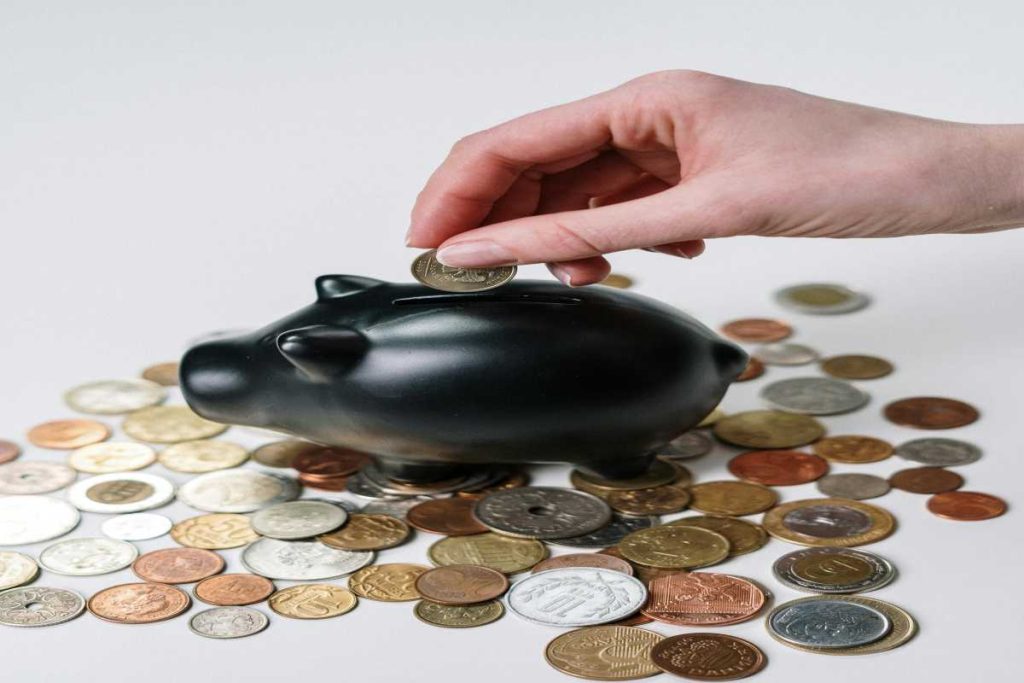If you’re looking for ways to save money and build wealth, you’ve come to the right place. Living frugally isn’t about being cheap; it’s about being smart with your finances, making the most of your money, and setting yourself up for long-term financial success. By incorporating even a handful of these 70 frugal tips into your life, you can watch your savings grow while still enjoying life’s little pleasures.
Let’s dive in!

1. Create a Budget and Stick to It
The first step to frugal living is knowing where your money is going. Track your income and expenses to create a budget that helps you live within your means. Stick to it, and you’ll avoid overspending.
2. Set Financial Goals
Whether it’s saving for a house, paying off debt, or building an emergency fund, having clear financial goals will motivate you to stay frugal.
3. Use Cash Instead of Cards
Paying with cash makes you more mindful of your spending. It’s easy to swipe a card, but when you physically hand over cash, you’ll think twice about unnecessary purchases.
4. Shop with a Grocery List
Before heading to the store, make a list of what you need. Stick to the list, and avoid impulse purchases that add up over time.
5. Meal Plan
Planning your meals ahead of time ensures that you buy only what you need, reducing waste and saving money on unnecessary items.
6. Buy Generic Brands
Store-brand products are often just as good as name brands but come at a fraction of the cost. Make the switch for everyday items like groceries and household products.
7. Cook at Home
Eating out is expensive, and the cost adds up quickly. Cooking at home is healthier and cheaper. Plus, you can meal prep and have leftovers for the next day!
8. Buy in Bulk

Buying non-perishable items in bulk can save you a significant amount of money in the long run. Stock up on essentials like toilet paper, pasta, and canned goods when they’re on sale.
9. Freeze Leftovers
Instead of throwing away leftovers, freeze them for another meal. This reduces waste and saves you from ordering takeout on busy nights.
10. Cut Back on Meat
Meat can be one of the most expensive items in your grocery cart. Consider incorporating more vegetarian meals into your diet to save money.
11. Use Coupons
Take advantage of coupons, especially for groceries and household items. Digital apps like Honey or Rakuten make it easy to find and apply coupons to online purchases.
12. Buy Second-Hand
From clothes to furniture, buying used items can save you hundreds or even thousands of dollars. Thrift stores, consignment shops, and online marketplaces like eBay are great places to find deals.
13. DIY Cleaning Supplies
Many household cleaning products can be made using basic ingredients like vinegar, baking soda, and lemon. Making your own cleaners is not only cheaper but also eco-friendly.
14. Cancel Unused Subscriptions
Take a look at your recurring subscriptions. Are you still using that gym membership or streaming service? Cancel anything that you’re not getting full value from.
15. Use Public Transportation

If you live in a city with a reliable public transit system, using buses or trains can save you a ton on gas, parking, and car maintenance.
16. Carpool
If public transportation isn’t an option, consider carpooling with friends or co-workers. Sharing rides can cut your gas expenses in half.
17. Use a Fuel Rewards Program
Many grocery stores and gas stations offer fuel rewards programs. Take advantage of these to save on fuel costs.
18. Walk or Bike More
Not only will walking or biking save you money on transportation, but it’s also great for your health. Whenever possible, leave the car at home and enjoy the fresh air.
19. Unplug Appliances When Not in Use
Even when they’re turned off, appliances like microwaves, TVs, and computers use electricity if they’re plugged in. Unplug them to save on your energy bill.
20. Use Energy-Efficient Light Bulbs
Switching to LED or energy-efficient light bulbs can reduce your electricity consumption, saving you money in the long run.
21. Seal Your Windows and Doors
Drafty windows and doors can cause your heating or cooling system to work overtime. Sealing them with weather stripping or caulking can significantly lower your utility bills.
22. Lower Your Thermostat
During the winter, lowering your thermostat by just a few degrees can save you a considerable amount on heating costs. In the summer, raise it to reduce cooling expenses.
23. Air Dry Your Laundry
Skip the dryer and hang your clothes to air dry. This saves on electricity and extends the life of your clothing.
24. Limit Water Usage
Be mindful of how much water you use. Take shorter showers, fix leaks, and turn off the tap when brushing your teeth to lower your water bill.
25. DIY Repairs
Before calling a professional for minor household repairs, check online tutorials. You might be able to fix it yourself and save a hefty service fee.
26. Use Cashback Apps
Apps like Ibotta, Rakuten, and Dosh give you cashback for purchases you’d make anyway. Over time, this adds up to extra savings.
27. Buy Out-of-Season
Items like clothes, sports gear, and holiday decorations are often heavily discounted after the season ends. Stock up for next year when prices are low.
28. Shop End-of-Sale Clearance
Retailers clear out old inventory to make room for new products. Check the clearance section for steep discounts on everything from clothes to electronics.
29. Negotiate Bills
Many service providers, like your cable or internet company, will offer discounts if you simply ask. A quick call could save you money on your monthly bills.
30. Switch to a Cheaper Phone Plan
Evaluate your current phone plan and see if you’re paying for features you don’t use. Many budget-friendly plans offer great service for a fraction of the cost.
31. Switch to a Bank with No Fees
Bank fees can sneak up on you, from monthly maintenance fees to ATM charges. Find a bank that offers no-fee accounts to avoid losing money unnecessarily.
32. Set Up Automatic Savings
Many banks allow you to set up automatic transfers to your savings account. Even a small amount saved regularly adds up over time.
33. Limit Dining Out
Eating out should be a treat, not an everyday occurrence. Save money by dining out less frequently, and when you do, look for deals or coupons.
34. Pack Your Lunch
Instead of buying lunch every day, pack your own. You’ll save money and have more control over what you eat, making it a win-win for your wallet and your health.
35. Use the Library
Skip the bookstore and check out books, movies, and even audiobooks from your local library. Many libraries also offer free online resources.
36. Buy Refurbished Electronics
If you need a new phone or laptop, consider buying refurbished. These items are often like-new but come at a much lower price.
37. Limit Your TV Streaming Services
With so many streaming platforms, it’s easy to oversubscribe. Stick to one or two, and rotate them if necessary to save on monthly fees.
38. Use Reusable Items
Ditch disposable products like paper towels, plastic bags, and bottled water. Invest in reusable alternatives to save money over time.
39. Grow Your Own Food
If you have a garden, grow your own vegetables, herbs, and fruits. Even a small windowsill herb garden can save you money on groceries.
40. Start a Side Hustle
If you have extra time, start a side hustle to bring in additional income. Whether it’s freelancing, selling handmade goods, or driving for a rideshare company, every bit helps.
41. Avoid Debt
Living frugally means avoiding unnecessary debt. If you can’t afford something, save up for it instead of using credit and paying interest.
42. Sell Unwanted Items
Declutter your home and make extra cash by selling items you no longer need. Use online marketplaces like Facebook Marketplace, Craigslist, or eBay.
43. Use a Programmable Thermostat
Invest in a programmable thermostat to regulate your home’s temperature. This saves energy and reduces your utility bills by adjusting automatically when you’re away or asleep.
44. Repair, Don’t Replace
Before throwing something away, see if it can be repaired. This is especially true for clothes, shoes, and electronics.
45. Shop at Discount Stores
Stores like Dollar Tree or Aldi offer great deals on everyday essentials. Just be sure to check the quality before you buy.
46. Avoid Impulse Purchases
Before making a purchase, ask yourself if you really need the item or if it’s an impulse buy. Wait 24 hours before buying to avoid regret.
47. Use a Reward Credit Card Wisely
If you have a credit card, use one that offers rewards like cashback or travel points—but only if you pay it off in full each month to avoid interest.
48. Host Potlucks Instead of Dining Out
Invite friends over for a potluck dinner instead of going to a restaurant. It’s more affordable, and everyone gets to share their favorite dish.
49. Opt for Staycations
Instead of spending a fortune on travel, enjoy a staycation in your own city. Explore local parks, museums, and attractions.
50. Set Up Automatic Bill Payments
Avoid late fees by setting up automatic payments for your bills. You’ll never miss a due date, and some companies even offer discounts for auto-pay.
51. Refinance Your Mortgage
If interest rates have dropped, consider refinancing your mortgage. You could save thousands of dollars over the life of the loan.
52. Do Your Own Taxes
With so many tax preparation software options, you might be able to file your own taxes without hiring an expensive accountant.
53. Take Advantage of Employee Benefits
Check with your employer to see if they offer benefits like health savings accounts, retirement contributions, or commuter perks. These can save you money in the long run.
54. Use Reusable Water Bottles
Skip the bottled water and invest in a good reusable bottle. You’ll save money and reduce plastic waste.
55. Buy Multi-Use Items

Look for items that can serve multiple purposes, like a multi-use kitchen gadget or a convertible piece of furniture. This reduces the need for additional purchases.
56. Delay Major Purchases
When you’re considering a big purchase, delay it for a few weeks. This gives you time to think about whether you truly need it or if it’s a want.
57. Bundle Your Insurance
Bundling home, car, and other insurance policies can often lead to discounts, saving you money on premiums.
58. Make Coffee at Home
Skip the daily coffee shop run and brew your own coffee at home. A small investment in a coffee maker can save you hundreds each year.
59. Use Cashback Sites
Before making any online purchases, check if the retailer is part of a cashback program like Rakuten or Honey. These sites give you a percentage of your purchase back in cash.
60. Cancel Your Cable Subscription
With so many streaming services available, cable TV is becoming unnecessary. Cut the cord and save hundreds on your monthly entertainment bill.
61. Use a Clothesline
Instead of using a dryer, hang your clothes on a clothesline to air dry. This saves energy and extends the life of your clothing.
62. Reuse Gift Wrapping
Save and reuse gift bags, wrapping paper, and ribbons from special occasions. You’ll reduce waste and save money on gift packaging.
63. Buy Reusable Shopping Bags
Many stores now charge for plastic bags, so bring your own reusable shopping bags to save a little extra each trip.
64. Use the 30-Day Rule
For larger purchases, implement the 30-day rule: if you still want the item after 30 days, then consider buying it. This helps prevent impulse buys.
65. Look for Free Events
Check your community calendar for free local events like concerts, festivals, or outdoor movie screenings. It’s a fun way to enjoy entertainment without spending a dime.
66. Set Up a Sinking Fund
A sinking fund is a way to save for future expenses, like vacations or home repairs, by setting aside small amounts each month. This prevents you from dipping into your savings or going into debt.
67. Rent Instead of Buying
If you need something for a short time—like a tool, a car, or equipment—consider renting instead of buying. It’s often more cost-effective.
68. Learn to Sew
Minor sewing skills can save you money by allowing you to repair torn clothes instead of buying new ones.
69. Look for Alternatives to Gifting
Instead of buying expensive gifts, consider giving homemade items, offering services, or giving experiences like a fun day out.
70. Practice Gratitude
The more grateful you are for what you have, the less you’ll feel the need to spend on unnecessary things. Practicing gratitude leads to contentment and helps you stay frugal.
conclusion
By incorporating these 70 frugal tips into your daily life, you’ll not only save money but also build a healthier financial future. Whether you’re looking to pay off debt, save for a big purchase, or just live more comfortably within your means, these strategies can help you become wealthier today and set you on a path toward financial success.

